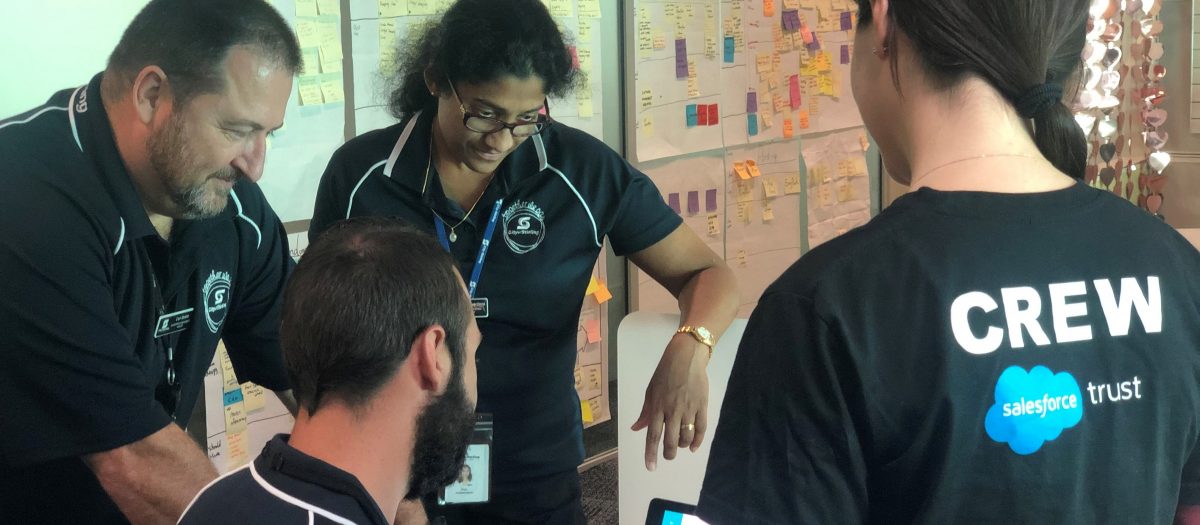The City of Stirling is a growing City council, customer service requests and ways the community wished to engage was diversifying and increasing at the same time as budgets were tightening. The City needed to find innovative ways to deliver positive customer experiences so started on a digital and cultural transformation journey – choosing to adopt the Relationship Management System (RMS) combined with a Customer Engagement Strategy.
Before this project, the City did not have a technology platform to enable the City to meet customer expectations. Its issues included:
- No visibility of all information related to a single customer in one place.
- Limited end-to-end workflows, from requests through to completion, requiring manual intervention resulting in duplication.
- Lengthy and inefficient processes when resolving customer enquiries.
- Inaccurate and unreliable reporting capabilities, contributing to both operational and audit related risks.
The Scope
Veev Group have supported the City from business case through to the implementation phases of a three-year implementation including; a focus on governance, process improvement, advisory and project delivery, and transition planning.
Our focus on the initial setup of good governance has ensured success through the resolution of issues and the constant improvement of the project approach. The strong governance and change approach featuring a steering committee, project manager, product owners, change champions, superusers and regular reporting through to Council via the audit committee has ensured that this project has been delivered within budget and agreed timeframes.
Our Approach
We were extremely clear in our objectives to provide a 360-degree view of the customer. A complex digital transformation project, involving six streams delivered simultaneously, included:
- Process mapping – re-engineering the City’s processes and placing customers at the heart of how the business functions.
- Salesforce configuration – digitising more than 70 processes in a customer-centric and innovative platform through the engagement of a leading partner.
- Integration – seamless integrations into existing business systems and across multiple channels like phone, email and web.
- Change management – minimising the impact of the transition on Councillors, customers and employees and creating a customer-centric culture.
- Data quality – cleansing the City’s data.
- Mobility – field officers’ ability to manage workload and appointments from any mobile device including; the ability to track crews, equipment, fleet, automatically schedule work to the right field officer based on time, skills, location and other business rules, optimise schedules and intelligently assign jobs.
The Outcomes
The RMS has been a critical digital enabler of the City’s vision to be a dynamic organisation that delivers effective services whilst maintaining a strong customer focus by underpinning the moments that matter for their customers. In achieving this, we have:
- Designed and provided a single a 360-degree view of the City’s customers interactions where information is up to date.
- Seamlessly integrated with the City’s core business systems, eliminating the need for manual intervention from staff by developing web forms with full back-end integration.
- Delivered time savings and efficiencies across the organisation by reducing manual tasks and the number of systems used, accountability for actions, and visibility of the information.
- Improved the ability for each customer’s self-serve and track requests, thereby reducing ‘avoidable contact’.
- Delivered a full knowledge management system ensuring City officers have automated access to information and documents appropriate to the customer inquiry.
- Provided scalability for future growth through Internet of Things (IOT) and Artificial Intelligence.
- Provided mobility for field officers and customers to lodge requests and report issues on-site.
With the process stream running 3-4 months ahead of the development stream, we identified process concerns, addressed them, and reengineered prior to development. This means we developed against a target future state rather than hoping to improve the process through another technology implementation.
A critical part of the process stream is to document the level of process efficiency, both prior to and post implementation, and clearly show the benefits to our key stakeholders. These benefits to date include:
- 20%-63% improvement in process efficiency and quantifiable reduced costs in file storage, office space, stationery and risk mitigation.
- Single source of truth for data.
- A guarantee that customers interactions will be responded to.
- A clear picture of the customers interactions to date, ensuring reduced call time and overall improvement to their experience.
- A consistent set of processes to which City staff can adhere to, and clear knowledge articles that support all processes, reducing the overhead of repeat training.
- A mobile solution for our external workforce that reduces travel and administration time.
- A solution that allows an issue in the field to be reported and actioned in the field instantly.
Next Steps
From the onset of this project, the City has had a clear view on ‘transition to operations’ – and although heavily reliant initially on external support, have gradually increased the capability of the internal team so that they can continue to develop Salesforce once external partners roll-off.
We have seen many examples of internal resources learning, growing and being part of the core delivery team to form the foundation of the team that delivers into the future. This includes change, product owner, project management, scrum master, business analyst and configuration capability.
By identifying key employees from within the organisation to work alongside Salesforce experts, the RMS project has delivered world-leading technology to the City, with customised solutions. At the same time, it offers development opportunities for internal team members which would have been impossible in their regular working environment.
